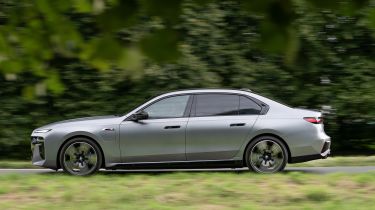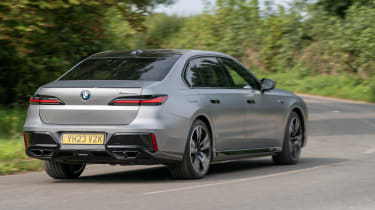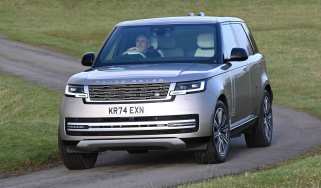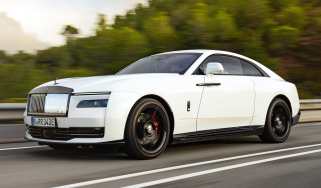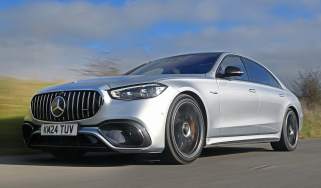BMW 7 Series review - Engines, performance and drive
The performance of the plug-in hybrid line-up stands out against rivals; refinement and comfort are exemplary, as is its agility

The best luxury cars have a deft ability to defy their size and weight to give a driver the impression they are behind the wheel of something much smaller, all while cossetting passengers who might be dozing in the back. The BMW 7 Series nails each of those targets arguably much better than what was regarded as the gold standard in this class, the Mercedes S-Class.
Ride comfort is fantastic, smothering shocks from potholes at low speeds as well as gliding over motorway expansion joints at higher speeds. The thudding sound you’d expect to hear is also exceptionally well insulated from the cabin when encountering such an impact.
Around town, where many 7 Series’ will spend their life ferrying around dignitaries and celebrities, you’ll appreciate how quiet it is trundling around in its electric mode. The electric motor used in the M760e’s powertrain is wonderfully smooth and easy to modulate. Another plus is that the brake pedal feels natural and progressive, which helps the driver bring the car to an easy halt, which is much harder to achieve in the equivalent plug-in hybrid S-Class. We’re yet to try the entry-level 750e in the UK, but we expect its electric motor and brakes to perform similarly well.
Used - available now

2020 BMW
7 Series
32,905 milesAutomaticPetrol3.0L
Cash £29,900
2022 BMW
7 Series
48,357 milesAutomaticPetrol3.0L
Cash £32,700
2019 BMW
7 Series
91,000 milesAutomaticDiesel3.0L
Cash £16,995
2019 BMW
7 Series
41,560 milesAutomaticDiesel3.0L
Cash £25,995The impressive level of comfort and refinement of the 7 Series will lead you to take for granted how competent it is in the corners. While the 7 Series isn’t the sort of car to hustle along a B-road, its composure, remarkably flat body control through corners, and high grip level are all very impressive. The optional rear-wheel-steering system helps to make it far more agile than expected, with a noticeable pivoting feeling in tighter turns as the back wheels turn in the opposite direction to the fronts. This drastically reduces the turning circle, making for easier low-speed manoeuvres. At higher speeds, the rear wheels turn in tandem with the fronts to aid stability.
The steering is light and direct, which also manages to mask the car’s weight. Resist the urge to look over your shoulder and see that enormous cabin behind, and it wouldn’t be hard to mistake the 7 Series for a smaller 5 Series-sized car. The brakes are strong and responsive, which is handy considering models like the M760e have huge straight-line performance.
At higher speeds, the ride of the adaptive air suspension remains settled yet controlled. Things become firmer (yet still very forgiving) when you switch to Sport mode, and the ride height drops by 10mm – that also happens at motorway speeds to aid aerodynamic efficiency. Much like it is around town, the cabin remains incredibly quiet.
0-62mph acceleration and top speed
Only two petrol plug-in hybrid options power the 7 Series. That might be an issue for those who do longer trips and rack up huge mileage. In that case, look at the S-Class instead because that has a choice of two diesel options.
However, the ability to zip around on electricity alone will be a real boon for those mostly driving in the city. The entry-level 750e has nearly 50 miles of electric range and a stout 489bhp. That’ll allow it to nip from 0-62mph in a mere 4.8 seconds.
The 0-62mph dash in the M760e takes just 4.3 seconds due to its strong 571bhp output. That’s perhaps overkill for a car such as this, but it is nice to know you’ll have the urgency to nip into a gap in the traffic. The hybrid system switches between petrol and electric modes very smoothly and manages nearly 48 miles on electricity alone despite its potent performance.
